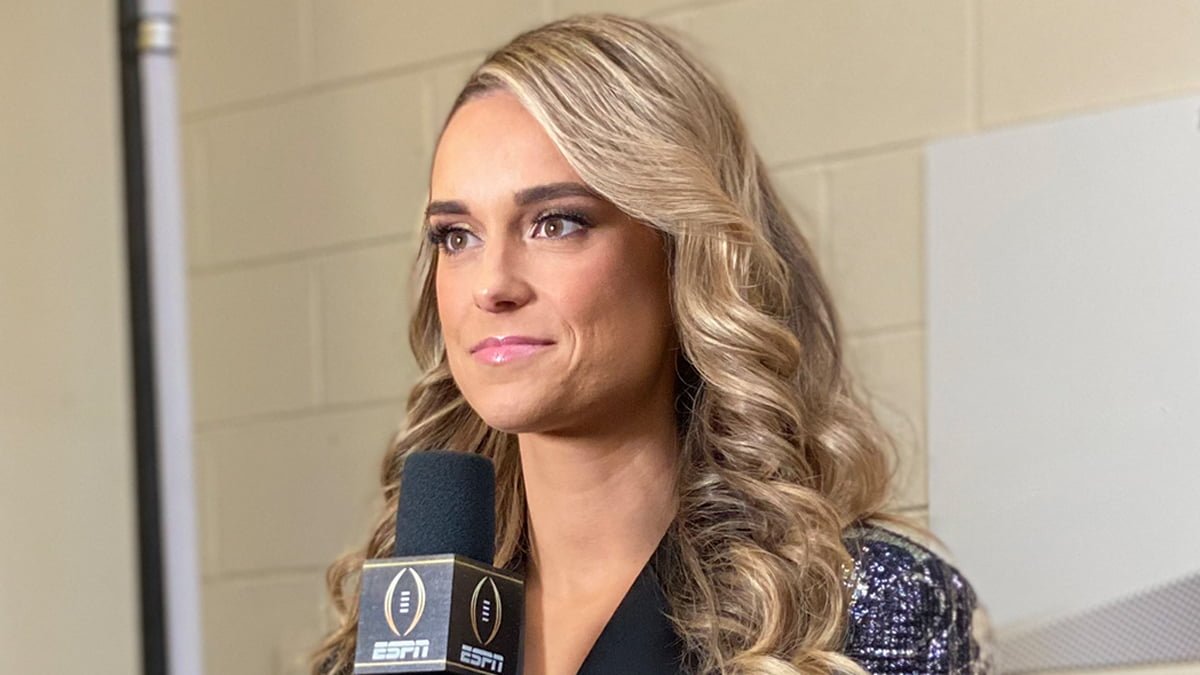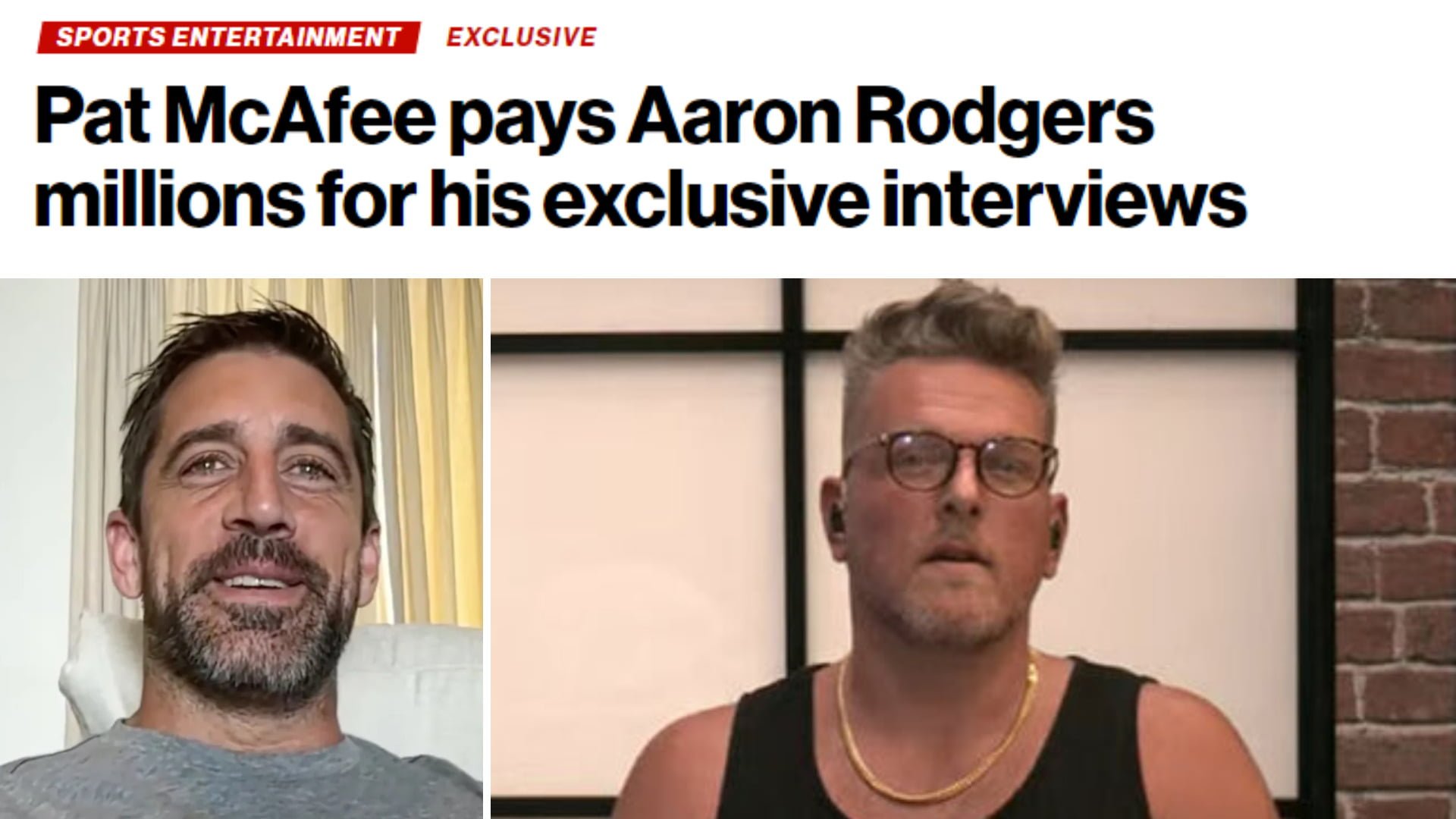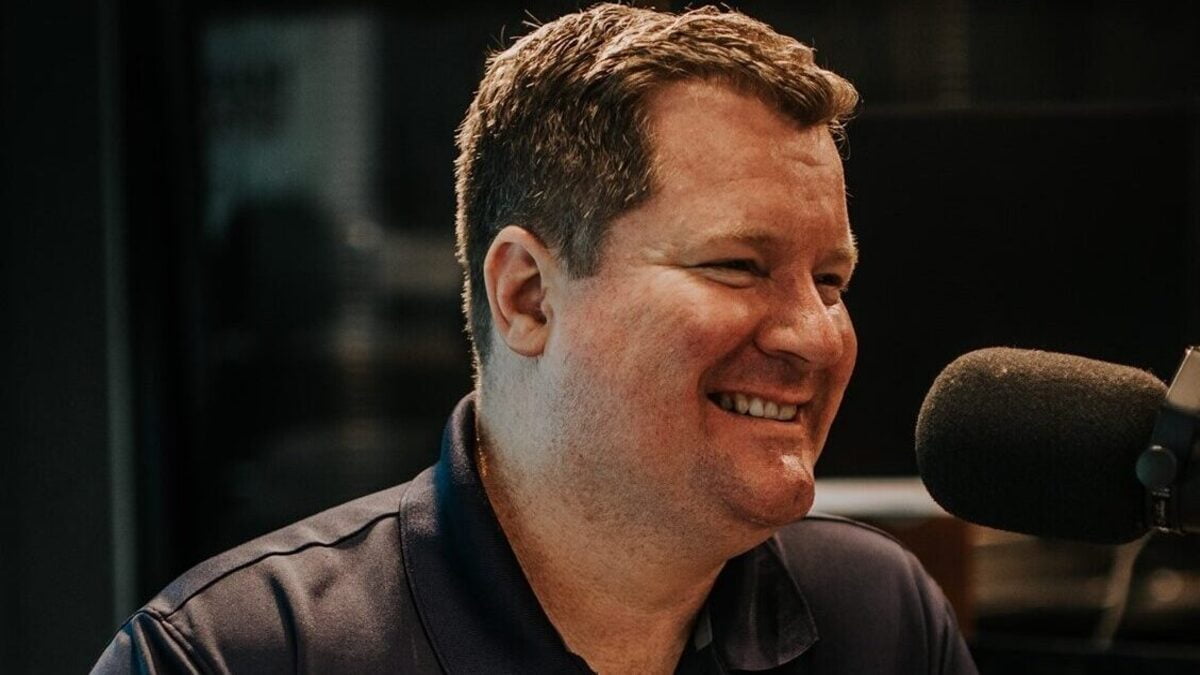As the clock counts down to the end of the fourth quarter, Molly McGrath stands at the ready. Prepared, alert and energized, she sprints onto the field at the sound of the final buzzer to interview West Virginia head football coach, Neal Brown, after his team claimed a 17-6 victory over Pittsburgh. Once her work was done, she posted the video to social media, which garnered a significant number of views and remarks commending her dedication to the craft.
While it may seem like an aberration from the norm for viewers, the occurrence represented a typical day on the job for McGrath, who has been working for ESPN as a college football reporter since 2016. Whenever she is on site for an assignment, her objective is to provide information and insights by serving as a resource on the field.
“He just shook the hand of someone that he just beat on the field, [so] you want to get that interview right after that moment,” McGrath explained. “[I] can’t say I don’t hustle and work hard – I definitely do. I’m a little aggressive; maybe some people think it’s too much, but I do that pretty much after every game.”
Having the wherewithal to hustle is essential to McGrath’s occupation, which necessitates extensive preparation, collaboration and synergy. Keeping her role in perspective, she is able to execute her tasks at a high level, which pay dividends to the aggregate output. Additionally, possessing a keen interest and shrewd understanding of the psychology behind the broadcast renders her adept at addressing the needs of her colleagues.
When McGrath moved from the West Coast to Boston to study broadcast journalism at Boston College, she made it a point to stay in the metropolis each summer. Although she had completed internships with WHDH-TV and NESN, the impending start to her senior year heightened concern over a lack of genuine reporting experience.
Despite serving as captain of the cheerleading team, McGrath met with athletic director Gene DeFilippo to solicit clearance to interview student athletes, coaches and personnel in a student-reporter role. Evoking evidence of an ostensible schism between the athletes and other college students, she pitched her ability to bridge that gap through journalism.
“He always tells the story, [and] it’s so funny because he’s like, ‘Here comes in this little blonde cheerleader spitting piss and vinegar, and she’s telling me I need to give her a job and let her do all these things,’ because I guess I was pretty demanding or strong in what I wanted,’” McGrath shared. “….I said, ‘This is what I want to do. I want to be a sports reporter, and I want your help.’”
Throughout her senior year, McGrath was vigorous in her pursuit to compile a demo reel to facilitate her job applications. Despite reaching out to more than 100 different sports networks at every corner of the United States and enduring universal rejection, she remained persistent and eventually received a lucky break. McGrath, as it turns out, was afforded a chance to work at ESPN as a production assistant, where she experienced the competitive nature of the profession firsthand.
While there is a discernible yearning for obsequiousness in dedicated professionals, vitriol and acerbic rhetoric can demoralize self-confidence and engender animosity and contempt. McGrath always looks to succeed in her endeavors and simultaneously has avoided becoming ensnared in malice, substantiated through her relationships with other colleagues. Part of that emanated from developing a kinship with her cheerleading teammates.
“There’s this perception that women are competitive and unkind with each other, but I’ve found that in this industry, at least in my experience and especially at ESPN, the women are all really supportive of each other and we want each other to succeed because I think it makes all women look better,” McGrath said. “If we’re all succeeding, it’s better for women in this male-dominated industry in general.”
After six months, McGrath departed ESPN and drew the attention of the Boston Celtics, which brought her on as a web reporter and in-arena host. Repetitions both on digital platforms and at TD Garden refined her ability in cohesive storytelling, along with being comfortable addressing a crowd.
“When I’m on TV and it’s just me looking into a camera, sure there might be millions of people watching me, but it doesn’t faze me because being in an arena live with people is so much more difficult,” McGrath said. “I think it taught me to persevere and to stay clear-headed, and to tell my story, in a way, around a bunch of people.”
As her second season with the Celtics came to a close, McGrath felt she needed to do more to ensure sustained growth. One day, she spontaneously looked at her Facebook messages and saw a FOX Sports executive had reached out, sharing that the company was starting a new sports network. Jacob Ullman, senior vice president of production and talent development, discovered her work on YouTube and thought that she may be a good fit.
McGrath then noticed it had been sent two weeks earlier, and she rapidly followed up and flew to Los Angeles to audition. By May, she was on the air as an in-studio host and update anchor, on the ground floor of what proved to be a burgeoning property. Once it became time for football season, she was added to the NFL on FOX lineup to work as a sideline reporter with Sam Rosen and Heath Evans.
“I was terrible, but I had so much fun, and to be at an event live is so invigorating,” McGrath said. “I remember in that moment before one of my first games thinking, ‘I think this is something I really need to do, and I need to be the best at it,’ because why else would you do it if you don’t want to be one of the best?”
McGrath’s hard work was rewarded with a promotion to serve as the network’s lead college football reporter the next season. Working alongside Gus Johnson and Charles Davis was an invaluable experience for her to grow accustomed to different settings, build her network of contacts and become more proficient in reporting.
“I was still learning, but [I] worked really hard,” McGrath said. “I had a couple of moments where I’m like, ‘Oh shit, I’m on TV,’ and I would get really nervous because I was still so young and inexperienced.”
McGrath ultimately made her return to ESPN ahead of the 2016 college football season to contribute on Friday night college football telecasts and occasionally host College Football Live. The demand for excellence was still very much present, and McGrath felt motivated to prove to executives that they had made the right decision in bringing her back.
“Being a part of game broadcasts at ESPN [brings] heightened expectations and a heightened level of, ‘Everyone needs to be great,’ and, ‘Everyone needs to pull their own weight,’” McGrath said. “That’s something that I learned at ESPN that I think has made me better.”
In the years that have ensued, McGrath has ascended through the ranks, much of which can be attributed to her preparatory regimen leading up to an assignment. In working as the lead reporter for ESPN Saturday Night Primetime, she usually finds herself on a flight home on Sunday morning and begins her work at cruising altitude. Throughout the rest of the day, McGrath works to schedule conversations with the athletes and uses her time on Monday to complete her film study.
“I think that I’m at my best when I’m just reacting and when I’m working unscripted because I have confidence from my preparation,” McGrath said. “….Is there burnout? Yeah, but I wouldn’t be able to prepare any other way.”
Staying prepared to react to dynamic circumstances while gathering and disseminating content enhances the aggregate presentation effort. McGrath feels an innate fear of failure and approaches the week-by-week grind as if she is studying for a final exam that she has no choice but to ace.
McGrath has an affinity for perfection, but she willingly embraces alterations in the plan and unforeseen occurrences. Embedded within each win and loss lies an immeasurable number of sequences that can determine the final score, and she needs to remain nimble to parse the contest accordingly. She hardly remains idle, always staying locked in to the action and focused on deftly carrying out the task at hand.
“I don’t want to tell some fluffy stories that I could have told on Friday afternoon,” she explained. “I want to tell you exactly what the quarterback is saying to his offensive line after that sack, [and] I want to tell you exactly the look on the players’ face and the sounds that they made when they come off of the field with an injury.”
With four minutes to go in the contest, McGrath can usually discern who is going to win, although there are plenty of last-minute changes in fortune. As the end of the game approaches, she begins to contemplate events in themes and prioritizes what is most important. McGrath has a limited amount of time to execute a postgame interview, and she usually prioritizes clarifying ambiguity and highlighting the emotions of the moment.
“A good reporter is a good listener, so I listen to what my booth is talking about,” McGrath said. “[For] the most important things that my booth has talked about, it is my responsibility to ask about those things because it adds to their conversation and their story.”
McGrath works alongside play-by-play announcer Sean McDonough on Saturday nights, someone she considers to be a trusted colleague and close friend. With his vast experience in various disciplines of broadcasting, he is able to be candid and honest with his colleagues.
“Sean is someone who elevates everyone around him because he demands the best,” McGrath said. “He demands us to know every statistic and to have everything perfectly correct and to have the reports be succinct and to have the questions be thoughtful.”
Greg McElroy also joined the broadcast team this season as the color commentator and provides a consistent level of energy and work ethic. The relationship between broadcasters, producers and other personnel is especially important considering weekly travel and collaboration in addition to the final on-air product.
“We’ve seen in the past [that] there have been broadcast booths where the chemistry wasn’t great, and it affects the way people call the game,” McGrath said. “The fact that we all love each other, want what’s best for each other, and make each other better, I think makes our broadcasts so special and great.”
Throughout the game, McGrath aims to be the best teammate possible and is genuinely indifferent as to how long the camera is on her. Namely, she contributes in many different ways on the air and does not always receive attribution, underscoring her commitment to the viewing experience.
“The game is not about you,” McGrath said. “The game broadcast is about the game, [and] it is about the athletes on the field. You are there to highlight them.”
McGrath recently returned from maternity leave after welcoming her second child into the world, and she treasures the moments she gets to spend with them. Watching them in the early stages of their lives has refreshed the reason why she performs the role, focusing more on the impact it will have on her children than her own success. The sacrifices in being a working mother often away for days at a time can complicate retaining harmony, and it requires a true passion for the craft.
“I think that I’m a better mother because I love what I do,” McGrath said. “I hope someday my kids will understand, and I hope that they’ll be proud of me.”
In addition to being a role model for her children, McGrath wants to serve as an example for women aspiring to forge a career in the industry. In articulating that women have had an uphill battle since the beginning, she referenced previous criticisms pertaining to her reporting and appearance on social media. McGrath overcomes the adversity by focusing on her inner circle and knowing that they would defend her no matter the outcome.
“I think it’s just leaning on the people that I work with and knowing that it doesn’t matter what other people think,” McGrath said. “All that matters is that the people I work with know that I work hard and that I’m a good teammate. That’s the kind of thing that I just repeat to myself.”
When McGrath begins her responsibilities as a college basketball reporter, she knows that it will likely not be as time consuming and intense as the college football season. The sport is more conducive to one-on-one conversations, which usually take place at shootaround, and the games are usually shorter. Even so, she will approach the situation in the same way with an intent to be the best reporter on the air.
“[The athletes] are out there working their butts off to try and win a game; you should be working your butt off to cover them properly and fairly,” McGrath said. “I think it’s just working hard. You can’t be afraid of hard work, [and] you can’t be afraid of hustling and taking any opportunities that you can to get better.”
For McGrath, continuing to establish herself in the space and garnering career longevity are appealing, and while she values her concentrations, she has always wanted to report on the Super Bowl. The Walt Disney Company will broadcast the season-ending contest in February 2027 from a location to be determined, and while there are no guarantees in this industry, taking the air from the game would fulfill a lifelong dream.
“It’s something that hopefully I’m able to do,” McGrath said. “I want to have a really long career, but it’s hard to break from one sport into the other. It’s hard to navigate trying to cover more of the NFL, and hopefully, I’ll have an opportunity to do that down the line.”
Whether or not she is in the presence of the Vince Lombardi Trophy, McGrath remains committed to excelling on the collegiate broadcasts. Although she never ran track, she is always in the start position and ready to sprint, literally and figuratively, to actualize her role in effectuating a premium broadcast.
“I always get a, ‘Hey, Molly, great game,’ after games like that, and it’s because I know that I added a ton of value,” McGrath said. “For me, it’s those games; it’s the unseen things, I think, that can sometimes be the most important.”
Derek Futterman is a contributing editor and sports media reporter for Barrett Media. Additionally, he has worked in a broad array of roles in multimedia production – including on live game broadcasts and audiovisual platforms – and in digital content development and management. He previously interned for Paramount within Showtime Networks, wrote for the Long Island Herald and served as lead sports producer at NY2C. To get in touch, find him on X @derekfutterman.







